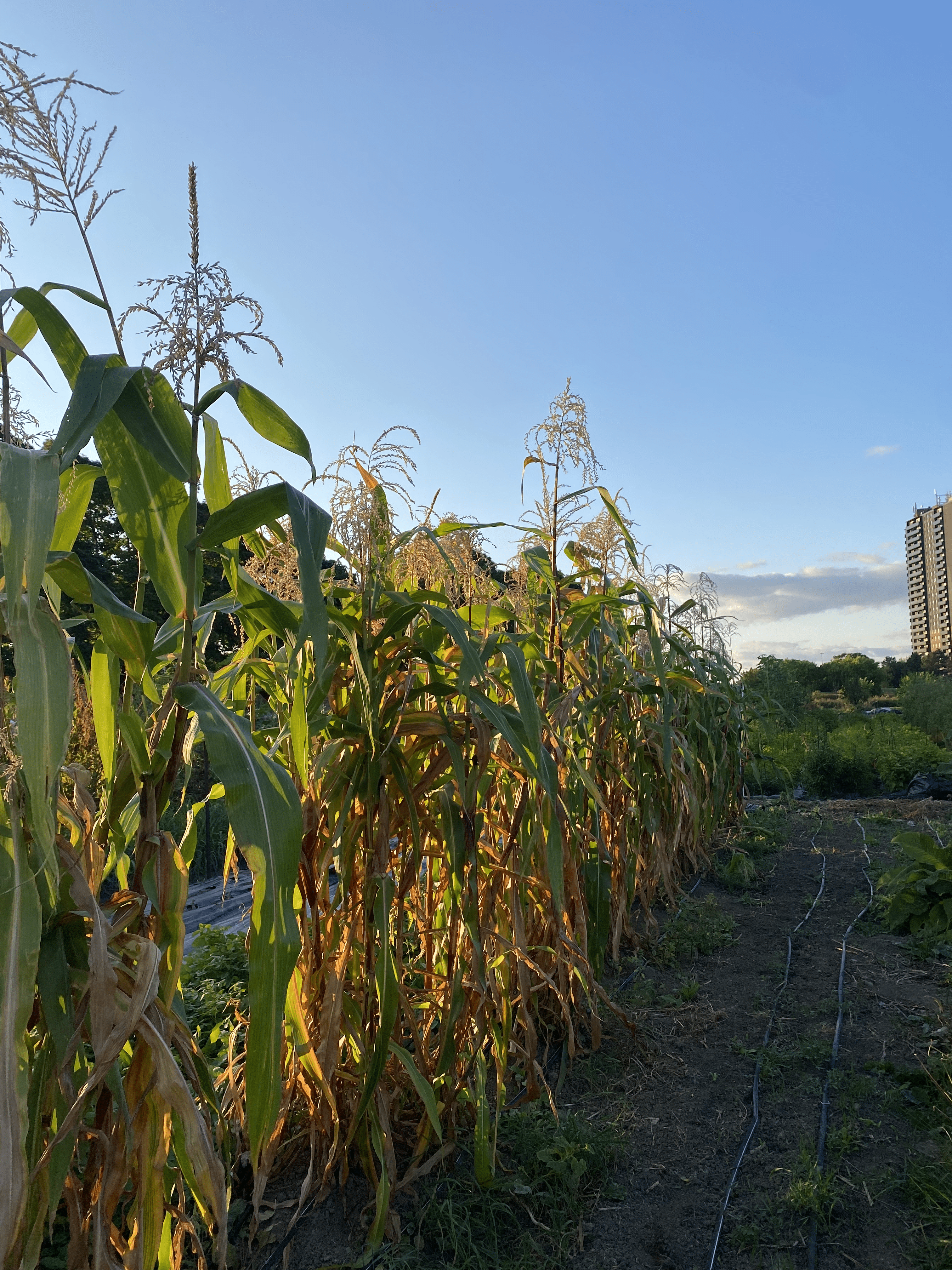- About
- Research
-
-
- Special Reports & Features
- Pretendians and Publications: The Problem and Solutions to Redface Research
- Pinasunniq: Reflections on a Northern Indigenous Economy
- From Risk to Resilience: Indigenous Alternatives to Climate Risk Assessment in Canada
- Twenty-Five Years of Gladue: Indigenous ‘Over-Incarceration’ & the Failure of the Criminal Justice System on the Grand River
- Calls to Action Accountability: A 2023 Status Update on Reconciliation
- Data Colonialism in Canada’s Chemical Valley
- Bad Forecast: The Illusion of Indigenous Inclusion and Representation in Climate Adaptation Plans in Canada
- Indigenous Food Sovereignty in Ontario: A Study of Exclusion at the Ministry of Agriculture, Food & Rural Affairs
- Indigenous Land-Based Education in Theory & Practice
- Between Membership & Belonging: Life Under Section 10 of the Indian Act
- Redwashing Extraction: Indigenous Relations at Canada’s Big Five Banks
- Treaty Interpretation in the Age of Restoule
- A Culture of Exploitation: “Reconciliation” and the Institutions of Canadian Art
- Bill C-92: An Act respecting First Nations, Inuit, and Métis Children, Youth and Families
- COVID-19, the Numbered Treaties & the Politics of Life
- The Rise of the First Nations Land Management Regime: A Critical Analysis
- The UN Declaration on the Rights of Indigenous Peoples in Canada: Lessons from B.C.
- View all reports.
- Special Reports & Features
-
-
- Yellowhead School
- The Treaty Map
- LIBRARY
- Submissions
- Donate
This Brief is an extension of and in dialogue with the Yellowhead Special Report, “Indigenous Food Sovereignty in Ontario: A Study of Exclusion at the Ministry of Agriculture, Food & Rural Affairs.”
Toronto is a place of many names. Tkaronto, Aterón:to, Chi-Odena, is a place many Indigenous and Black communities have called home for millennia. Some translations attribute the meaning of Tkaronto as “the place of the submerged tree or trees,” “abundance, or a place of plenty in Wendat” and “meeting place” (Loft, 2021, 21). In Indigenous Toronto, Ange Loft centres Tkaronto as an Indigenous place, in which land and food systems are governed by Indigenous Nations, specifically the Dish With One Spoon Treaty. She speaks of how plentiful Lake Ontario was known to be, and how many Indigenous and settler groups relied on weirs as a fishing source. Despite the prevalent erasure of Indigenous presence and caretaking in the city, these names communicate historic kinship networks that continue to exist. As a young farmer in Tkaronto, these are the place stories that inform my growing practice and underline the objectives of the farm I co-run with Indigenous, Black, and Filipinx/a/o youth.
A collaboration between Ethan Dankert-Lannigan, Cheyanne Valencia-Hinds, Kikiyah Alina, Kailee Cripton-Eser and myself, Tkaronto Plant Life was founded as a small grassroots initiative. As emphasized in the Yellowhead Report on Indigenous Food Sovereignty in Ontario, food is a spiritual meeting point. After the 215 unmarked graves of Indigenous children were found at Kamloops Residential School, growing food together provided healing and connection for urban Black, Indigenous, and people of colour (BIPOC) at Dufferin Grove Park, a place where they often gathered during the summer of 2021. Food and medicines were made accessible to everyone, and as their relations grew, so did the plants. All were encouraged to help the garden thrive, especially those living in the park.
In less than a year of operation, Tkaronto Plant Life expanded to work with FoodShare Toronto, where we currently run a small-scale farm. We grow a mix of traditional foods, vegetables, and herbs, all of which are donated to and prioritized for Indigenous, Black, and Black-Indigenous community members across Tkaronto.
We know our experiences of providing sustenance and community care are not new to this area; Tkaronto has always been and will continue to be an important place of food systems for BIPOC communities.
While organizers and urban farmers have done immense work in building food sovereignty initiatives, most, if not all of this work has yet been without the support from agricultural governing bodies such as the Ontario Ministry of Agriculture, Food, and Rural Affairs (OMAFRA).
Exclusion of Indigenous, Black, and Urban Farmers of Colour
It’s imperative for OMAFRA to review and implement the suggestions put forward by Tabitha Robin, Sarah Rotz, and Adrianne Xavier in Yellowhead’s Special Report. Issues such as land access, selling off Indigenous lands, lack of implementation and understanding of the duty to consult, racism, paternalism in relationships and policy approaches, and completely different approaches to food systems connect the issues BIPOC farmers face in urban centres to those in northern Ontario.
Because food is used as a tool of settler colonialism, it’s no surprise that Indigenous food sovereignty initiatives continue to be excluded by OMAFRA, including those located in cities. Nowhere within OMAFRA’s online objectives does it indicate support, access to land, or policy that protects, facilitates and encourages food growing, animal raising, and skill building for Indigenous and BIPOC farmers within cities.
This points to bigger issues surrounding the colonial food system: who we assume is a farmer; government priorities regarding where, and what food is grown; urban food production and who gets to have food security.
Simply put, the existing provincial and municipal policies exclude many, such as BIPOC in cities. As a start toward mitigating this, OMAFRA needs to develop policies that recognize cities, such as Tkaronto, are currently home to food systems and farmers that prioritize BIPOC.
As food insecurity amongst Black and Indigenous households remains the highest in the province – a contemporary result of centuries of colonization, slavery, and violence – BIPOC farmers, including Tkaronto Plant Life, refuse to let our communities go hungry and refuse to let urban communities be left out of food sovereignty and farming skills-building (Tarasuk et al., 2022). In fact, provinces (governments and people) can learn from Indigenous farmers and food systems if we are to build life-affirming, equitable, and ecologically-sound food systems for the future. To quote the Special Report, “Indigenous land and food practices have long been marginalized, yet they have much to offer in building a sustainable food system across diverse local ecological contexts.”
There are actually numerous BIPOC food sovereignty initiatives in the province. But due to lack of support, there is also an invisibility, which means these initiatives face major challenges. From the perspective of Tkaronto Plant Life, maintaining funding and access to land is extremely laborious and precarious work. Being a farm located in the city, we do not qualify for agricultural funding support from OMAFRA. It also continues to be necessary to position our collective as a grassroots/nonprofit group, given eligibility requirements for various grants from bigger nonprofits. Therefore, for the upcoming season, it will be necessary for us to balance how we engage in farmer’s markets, even if we plan on selling on a pay-what-you-can basis. Besides donations and volunteering, this leaves very little room for the community to support our work; it continues to be a struggle to get out of a donation-based system and reliance on non-profits to provide us with growing space. This is unsustainable. Even if we were to change to a social enterprise or for-profit model, it would take years to get the support, land, and funding necessary to be considered a project OMAFRA would support. But this type of for-profit model would not necessarily allow us to serve our community in ways we value.
Shifting How We Think About Food, Farming, & Land
A fundamental shift is needed in how OMAFRA thinks about food, land, and sustenance going forward; a shift that would open a path toward equitable policy for Indigenous food sovereignties. As it currently stands, OMAFRA exclusively prioritizes food systems that are linked to agro-centrism, such as mono-cropping, big agriculture, and the physical act of growing foods. This is evident from OMAFRA’s objectives and the experiences of Indigenous communities that have tried tirelessly to receive funding from them. Yes, growing food is important to food security and feeding Ontario, but so is the non agrocentric relations to food as mentioned in the Special Report, such as hunting, trapping, and foraging. In cities, these priorities can look like restoring lake species, regulating and reconciling pollution, and restoring and creating more access to farmland and rooftops.
Given the historic and ongoing exclusion of urban farmers and Indigenous communities from settler food systems, OMAFRA needs to enact policies and priorities that aim at learning from and with Indigenous farmers and communities. Indigenous, Black, and Black-Indigenous food systems within cities provide blueprints for future food systems; they are backed by ancestral and future-oriented understandings of what the land and our communities need.
For example, policies that prohibit food selling and growing because of “safety” policies and guidelines completely undermine the scientific knowledge systems of Indigenous communities that have already been growing food safely in cities for generations. There is a plethora of food and animals in Tkaronto, and if a policy is collaboratively developed with Indigenous communities, it is possible to steward populations and native plants that can facilitate more safety and restrict diseases that may be present.
Additionally, public-private relationships regarding land and space need to be incentivized for access to land and the stability of BIPOC farmers. Tkaronto is the first city in North America to implement a green-roof by-law and these roofs should be matched with BIPOC farmers and open to the public where possible. There are many examples of successful rooftop farms across the city, such as the TMU Rooftop Farm. There are also city-specific departments that work with local by-laws that OMAFRA should engage with in amending their policies and processes, aimed at making rooftop food systems more achievable. This is not to say converting all roofs in Tkaronto and cities will fix food insecurity for BIPOC across the province, but if OMAFRA shifts what is considered productive farming and agriculture, there are opportunities to support urban BIPOC food systems as well as Indigenous communities that are currently excluded from OMAFRA support.
BIPOC farmers and growers do the work of feeding people, encouraging a sustainable farming sector, and imagining a future of food production that is collaborative, healthy, and equitable. What is most important, is that these farmers and stewards are informed by their communities’ needs and wants for the future. Although OMAFRA prioritizes agro-centric farming models, Indigenous and urban food systems can inform the shift that is needed from OMAFRA in opening up possibilities for food production that emphasize food security. Cities are places of sustenance, too, and should be recognized, supported, and held up as a model.
Citation: Rizarri, Kaitlin. “Tkaronto is a place for sustenance” Yellowhead Institute. 11 April 2023. https://yellowheadinstitute.org/2023/04/11/tkaronto-is-a-place-for-sustenance/
Endnotes
Loft, Ange, “Remember Like We Do,’ in Indigenous Toronto: Stories That Carry This Place, edited by Denise Bolduc, Mnawaate Gordion-Corbiere, Rebeka Tabobondung, and Brian Wright-McLeod, 17-28, Toronto: Coach House Books, 2021.
Tarasuk V, Li T, Fafard St-Germain AA., “Household food insecurity in Canada,” Toronto: PROOF, 2021. https://proof.utoronto.ca/



